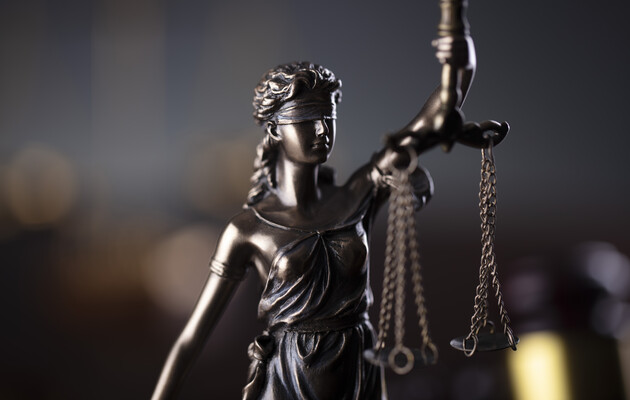
Raider takeover of the Constitutional Court: what is wrong with the adopted bill No. 7662 and how to fix it?
On December 13, the Verkhovna Rada voted in general bill No. 7662, which the deputies called European integration. Indeed, the reform of the selection of judges of the Constitutional Court of Ukraine (CCU) is No. 1 among the seven points related to Ukraine obtaining candidate status and opening negotiations on joining the EU. But public experts have repeatedly warned: in the form in which it was prepared for the second reading, this bill is a direct way for the political authorities to establish complete control over the Constitutional Court, writes ZN.
What is wrong with political appointments to the Constitutional Court?
In Ukraine, all presidents tried to take control of the Constitutional Court by appointing “their” people. For example, Yanukovych achieved significant success in this – he forced several judges to resign and appointed persons loyal to himself. Then the obedient Constitutional Court returned the Constitution for him in the 1996 edition with super-broad powers of the president. The practice of political appointments to the Constitutional Court eventually ended with the crisis of 2020, when it actually canceled electronic declarations, and a day later, protesters burned tires under the building of the Constitutional Court.
After that, the Venice Commission, at the request of President Volodymyr Zelensky, recommended Ukraine to reform. The way out of the crisis, in her opinion, should have been the introduction of a transparent selection procedure in the CCU. The result of this procedure should be a professional, impartial composition of the Constitutional Court and the same decisions of judges.
Since 2016, Article 148 of the Constitution of Ukraine provides that the appointment of judges of the Constitutional Court is carried out on a competitive basis. But these competitive procedures never reached the level of law, up to the voting on draft law No. 7662.
What No. 7662 proposes
The content of the wording of the bill, which the Rada voted for, is also about the procedure for appointing judges of the Constitutional Court. But it is designed in such a way that only those who like political power and whom it actually controls will be able to pass the selection.
The bill provides for the creation of an Advisory Group of six experts (SGE) – a selection committee that will check candidates. It will include three independent experts delegated by our international partners, similar to the Ethical Council, which selects the High Council of Justice (HJC), another important body in the judiciary. But three more will be representatives of the authorities. The problem is that, as shown by recent competitions (for example, for the selection of the head of the SAP), the delegates in power will act in the best traditions of Ukrainian political culture, and international affairs do not have a predominant voice to block their political decisions.
It will work like this. For example, an unambiguously dishonest candidate (conditional Tupitsky), a real agent of change and a “dark horse” about whom little is known are submitted for the competition. The first one, to the applause of the public and international partners, will be blocked by independent international experts. And then, when “the main threat has already been eliminated”, the real show will begin. The pro-government members of the SGE will begin to say that, in their opinion, the independent candidate is too “not qualified enough” or something else is wrong with him. The majority of votes, respectively, has a chance to get only the “dark horse”, which will become a judge of the Constitutional Court. Most likely, a person without significant problems with property and a sharply negative track record in state authorities, for which he could be “banned” by international experts. But with sufficient connections with political power. As a result, the “dark horse” may well turn out to be a “wolf in sheep's clothing.” But we learn about this only from the votes of such a judge, who was appointed for nine years and it will be impossible to dismiss him.
An alternative to the situation under consideration could be the model of the overwhelming vote of independent experts, which, unfortunately, is not provided for in the new draft law on the CCU. Despite this, she showed herself better in competitions for positions in other government bodies. For example, the already mentioned Ethics Council functions, which weeds out dishonest candidates for the High Council of Justice (the body that appoints and dismisses judges). His activities are already showing unprecedented results: in August 2022, Euromaidan activist, lawyer and former member of the Public Council of Integrity Roman Maselko became a member of the High Council of Justice. In other circumstances, without the activities of the Ethics Council, this would not have been possible, and the appointment to the Supreme Court of Justice would again be influenced by Pavel Vovk and other judicial mafia. The ethics council also consists of six members, but three international experts have a predominant vote if they agree among themselves on the decision.
The society has seen more than once how the presidential commission selects judges without the participation of independent experts. For example, in November 2021, she unanimously recommended Alexander Sibiga to the CCU. His daughter at that time lived in Moscow, and public organizations reported that Sibiga did not declare a residential building in Kyiv with a total area of 719.5 square meters and a Porshe Cayenne car. But the presidential commission did not see a problem in these facts.
Why did they accept No. 7662
The office of the president systematically replenishes the court with loyal people, which already raises questions about the lack of bias of their decisions. Yes, this summer the parliament elected Olga Sovgirya, who was a deputy from the Servant of the People, as a judge of the Constitutional Court. Also, Viktor Kichun, a friend of the president’s representative to the CCU, Fyodor Venislavsky, and two judges appointed by the president himself, Oksana Grischuk and Alexander Petryshyn, work in the Constitutional Court according to the parliament’s quota. Their appointment on November 26 took place with significant violations: there were no vacancies in the Constitutional Court according to the president's quota, because the constitutional term of office of judges Tupitsky and Kasminin had not expired at that time. In addition, Alexander Petryshyn, despite the obvious conflict of interest, was appointed based on the results of the same “competition”, the winner of which was Alexander Sibiga.
In total, according to the DEJURE Foundation, the president's office already controls five judges, but this is clearly not enough. On December 6, at a special meeting of the Constitutional Court, three judges appointed according to the quota of the parliament were dismissed: Irina Zavgorodnyaya, Sergey Sas, Igor Slidenko. Accordingly, the new judges will be elected by the Verkhovna Rada. There, the Servant of the People faction constitutes a mono-majority and, obviously, can once again appoint “their own” candidates, unless, of course, it is hindered by an “too” independent commission.
Two more judges of the Constitutional Court next year the congress of judges will choose according to its quota. And despite the fact that one of the pillars of the judicial mafia, the OASK, has recently been eliminated, its influence on the processes is still significant. Consequently, they will also be inclined to agree politically there.
Bill No. 7662 has already been voted in the Rada, so now it is waiting for the President's signature, after which it will be published and come into force. If this happens, we will not just have an imitation of a competition for the Constitutional Court, which we have seen before. Now all this will be done under the slogans of European integration, and the window of opportunity for change will close for a long time, because the judges in the Constitutional Court are elected for nine years.
Updated conclusion of the “Venetian”: a new hope
The reform of the Constitutional Court, in addition to having a decisive influence on life within the country, is also a key condition for European integration. It is directly mentioned under No. 1 among the seven priorities, without the implementation of which it is impossible to open negotiations on our accession to the EU. Therefore, our international partners are very closely monitoring the fulfillment of this obligation.
But a special role in the process this time is given to the Venice Commission. It is on the basis of her recommendations that the procedure for selecting judges of the Constitutional Court of Ukraine should be changed, the European Commission and the European Council say in their decision about our candidacy.
However, this is not the first time that Venetianka experts have addressed this issue. Back in 2020, at the request of President Zelensky, the Venice Commission, in its conclusion, voiced the same theses about the real competitive procedure in the Constitutional Court: a commission independent of politicians should be created, which would consist of international experts (by analogy with the reform of other judicial bodies) and representatives of the public (for example, delegated by the Public Integrity Council). After that, she repeated what she said twice more, in her other two decisions.
The latest document of the Venice Commission, however, changes positions somewhat. The urgent conclusion, adopted specifically for the second reading of the bill, contained obvious factual errors and, accordingly, came to false conclusions. What played a role – the urgency of preparing the conclusion or the desire to support the authorities during the war, is unknown. However, this clearly did not benefit the reform and European integration.
For political forces interested in the dependence of the court, this was the best gift – they significantly worsened the text of the draft for the second reading. But even this edition of the Commission's conclusion did not respond to the draft. In particular, in the conclusion, the Venetian recommended adding a seventh member to the commission according to the quota of international experts. After that, a group of ambassadors of the G7 countries called on the deputies to adopt such a wording of the bill that would provide for a predominant vote for independent experts in the SGE. However, the parliamentary committee on legal policy ignored these recommendations during the preparation of the draft law for the second reading, and the hall during the voting as a whole, giving 245 votes for it.
However, literally three days after that, a plenary meeting of the Venice Commission was held, at which it resorted to an unprecedented step and changed its conclusion. Or rather, it adopted a new, so to speak, complete conclusion, instead of approving the previously adopted urgent one by the decision of the plenary meeting. This has happened in the Commission in relation to Ukraine only once before, and this testifies to the special weight of the changes adopted in Venice.
This time, the Venice Commission said as clearly as possible: there should be a seventh member in the SGE, and it should be according to the quota of independent international experts.
Failure to heed this recommendation would mean that the Ukrainian authorities are deliberately ignoring the findings of key international partners, as well as the fulfillment of their obligation No. 1, in order to gain control over the Constitutional Court. And this does not go unnoticed.
Instead of results
Draft law No. 7662 in its current version not only does not solve the problem of political dependence of judges of the Constitutional Court of Ukraine, but also contributes to the continuation of the practice of political appointments. The updated but still controlled Constitutional Court will continue to make politically motivated decisions on the most important aspects of society – early and regular elections, post-war reconstruction and reintegration, accession to the EU and NATO and related changes to laws and the Constitution. This poses a threat not only to reforms and democracy in the country, but also to European integration.
Now, during the war, our international partners are very reluctant to criticize the Ukrainian authorities, and this is understandable. But the time is not far off when both the European Commission and the EU member states will assess Ukraine's progress in reforms not by ardent speeches and ticks opposite the names of bills, but by the real state of things. And the EU, already taught by the bitter experience of other countries of Central and Eastern Europe with problems of the rule of law, can come up with many formal reasons not to take into its membership another country with a politically dependent Constitutional Court.
Therefore, now Ukraine has a historic choice: to get judicial reform right or miss a once-in-a-decade chance to jeopardize the democratic order, the rule of law and our European future.
The deputies have already had their say, putting partisan interests above the interests of the country .
This time Ukrainians are turning to the guarantor of the Constitution, rights and freedoms and the Euro-Atlantic course — President Zelensky. And they ask to veto an attempt to significantly deviate from it and correct the mistakes.
Will the president hear them?
Mikhail Zhernakov
The judge appointed by Zelensky of the Constitutional Court of Ukraine could have committed an offense related to corruption. Statement to the NAPC from the CPC
In Ukraine, they thought about the liquidation of the CCU: what is offered in return









